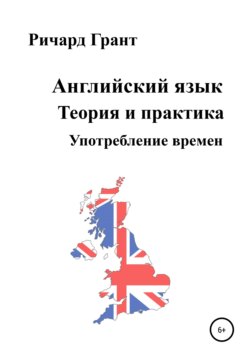Читать книгу Английский язык. Теория и практика. Употребление времен - Ричард Грант - Страница 4
Разница между The Past Simple и The Past Perfect
ОглавлениеPast Simple используется, когда действия происходят в хронологическом порядке, а Past Perfect – когда нужно показать, какое действие произошло первым, раньше остальных действий.
He started the car, turned the radio on and fastened the seat belt. – Он завел машину, включил радио и пристегнул ремень безопасности.
Действия описываются в хронологическом порядке: сначала он завел машину, потом включил радио и пристегнул ремень безопасности.
He started the car, turned the radio on, but before he had fastened the seat belt. – Он завел машину, включил радио, но перед этим пристегнул ремень безопасности.
Действия описываются не в хронологическом порядке: сначала он пристегнул ремень безопасности, а затем завел машину и включил радио.
Часто в подобных предложениях используется слово when (когда).
When I got home, my son took my car. – Когда я пришел домой, мой сын взял у меня машину.
When I got home, I found that my son had taken my car. – Когда я пришел домой, я обнаружил, что мой сын взял мою машину.
Если из контекста нам понятно, что одно действие произошло раньше другого, можно использовать как Past Perfect, так и Past Simple. Часто понять контекст и очередность событий помогают следующие слова-маркеры: before (перед тем как, до того как), after (после того как), first (сперва, сначала), as soon as (сразу после того как, как только), earlier (раньше) и т. д.
I didn’t worry about speaking in front of so many people. I gave public speeches earlier. – Я не переживал насчет выступления перед большим количеством людей. Я и ранее выступал на публике.
I didn’t worry about speaking in front of so many people. I had given public speeches earlier. – Я не переживал насчет выступления перед большим количеством людей. Я и ранее выступал на публике.
Упражнение 38
Раскройте скобки, употребляя глаголы в Past Simple или Past Perfect.
1. When the police … (to arrive), we already … (to catch) the thief. 2. Tom (to return) from the cinema at five o’clock. 3. By two o’clock the teacher (to examine) all the students. 4. Jack … (to finish) the test before the bell … (to ring). 5. Tom (to return) from the cinema by five o’clock. 6. On my way to school I (to remember) that I (to leave) my report at home. 7. When Anna … (to come) to say good-night, her children already … (to fall) asleep. 8. I (to finish) my homework at seven o’clock. 9. My friends (to be) glad to hear that I (to pass) all the exams successfully. 10. Scott already … (to prepare) the dinner when her husband … (to get) home from work. 11. I (to finish) my homework by seven o’clock. 12. Poor Oliver (to lie) unconscious on the spot where Sikes (to leave) him. 13. When Brad and Susan … (to get) married, they … (to know) each other for 3 years. 14. He (to think) that he (to lose) the money. 15. Mary (to tell) us that she (to cook) a good dinner.
Упражнение 39
Раскройте скобки, употребляя глаголы в Past Simple или Past Perfect.
1. He (to open) his eyes, (to look) around and (to try) to remember what (to happen) to him. 2. She … (not to enjoy) the film because she … (to read) the book before. 3. Ann (to tell) me that she (to see) an interesting film. 4. All the passengers (to see) at once that the old man (to travel) a great deal in his life. 5. Our apartment … (to be) in a mess because I … (to have) a birthday party the night before. 6. When I (to come) home, mother already (to cook) dinner. 7. By the time we (to come) to see him, he (to return) home. 8. We … (not to go) to a restaurant because we … (to spend) all our money on clothes. 9. When father (to return) from work, we already (to do) our homework. 10. During the holidays my friend (to visit) the village where he (to live) in his childhood. 11. Mary … (can’t go skating) after she … (to break) her leg. 12. When the teacher (to enter) the classroom, the pupils already (to open) their books. 13. When they (to enter) the hall, the performance already (to begin). 14. Larry … (to be) late because he … (to get) stuck in a traffic jam. 15. Kate (to give) me the book which she (to buy) the day before. 16. Yesterday I (to find) the book which I (to lose) in summer.
Упражнение 40
Раскройте скобки, употребляя глаголы в Past Simple или Past Perfect.
1. When I came home, my mother (to tell) me that she (to receive) a letter from grandfather. 2. Nick (to show) the teacher the picture which he (to draw). 3. Where you (to work) before you (to go) to university? 4. The boy (to give) the goats the grass which he (to bring) from the field. 5. He (to know) French before he (to visit) France. 6. Mother (to see) that Nick (not to wash) his hands. 7. Lanny (to say) that he (to get) his education in Cape Town. 8. The teacher (to understand) that Lena (not to do) her homework. 9. The boy (to want) to act the main part in the play because he (to organize) the theatre. 10. I (to know) that my friend (not yet to come). 11. Lanny (not to know) who (to attack) him in the darkness. 12. When I (to wake) up yesterday, father already (to go) to work. 13. The girl (to be) glad that she (to find) a seat near the window. 14. Nick (to think) that his father (not yet to come) home. 15. Suddenly he (to remember) that he (not to ring) her up in the morning. 16. When we (to come) to the station, the train already (to leave).
